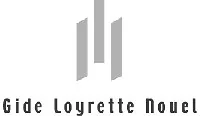On May 17, 2005 the Supreme Court delivered a particularly innovative judgment, which extends employers' powers to monitor personal files saved by employees to their computer's hard drive at work.
In the famous Nikon decision, the well-established principle was that "each employee has a right to privacy during working hours and in the workplace, namely a right to the secrecy of his or her correspondence".
The court inferred the following rule:
"An employer may not read, without violating this fundamental right, personal messages sent or received by an employee on a computer provided to him or her for professional purposes, even in the event that the employer has prohibited personal use of the computer" (Cass.soc., October 2, 2001, Nikon, appeal n°99-42.942)
In Nikon the court considered that the dismissal of the employee - who had sent confidential information on the company by email - was without real and serious cause, as the employer had failed to meet its burden of proof.
The court is now apparently mitigating this principle. With regard to personal files, the court considered that: "Save in cases where there is a risk or where a particular incident has occurred, an employer may be granted access to files identified as personal by the employee and saved to the hard drive of the employee's computer only in the presence of the employee or after the employee has been duly summoned" (Cass. Soc., May 17, 2005, n° 1089).
The decision marks a milestone, as it introduces two new distinctions. Firstly, a file will be considered personal only if identified as such by the employee. Therefore, the personal nature of a file must be indicated clearly in order to benefit from the protection provided by case law. This distinction should put an end to cases where first instance judges merely affirm that a message is personal when it was sent from or received on the employee's computer.
Moreover, the decision puts an end to the general prohibition preventing employers from accessing an employee's personal files. Employers can now open an employee's personal files provided that they have requested the presence of the employee concerned. The employee can no longer refuse to give access to his or her personal files. Whether this principle will be extended to correspondence remains to be seen.
Furthermore, the court went so far as to hold that employers can open personal files without requesting the employee's presence where there is a risk or where a particular incident has occurred. However, the definition of a 'risk' or a 'particular incident' remains unclear. In the case at hand, the court considered that the presence of photos of a pornographic nature in an employee's drawer constituted neither a risk nor a particular incident. Therefore, the employer had no right to access the employee's personal files in his absence.
The decision seems to align itself with the case law on personal cabinet searches, under which an employer can open an employee's personal cabinet only if (i) the former complies with the clauses and conditions of the company's internal rules and regulations, and (ii) the employee is present or has been duly summoned (Cass.soc., December 11, 2001, appeal n°99-43.030). Therefore, employers can control anything related to employees' personal life - whether it is their personal effects or computer files - as long as employers comply with employees' rights of defence.
The content of this article is intended to provide a general guide to the subject matter. Specialist advice should be sought about your specific circumstances.

